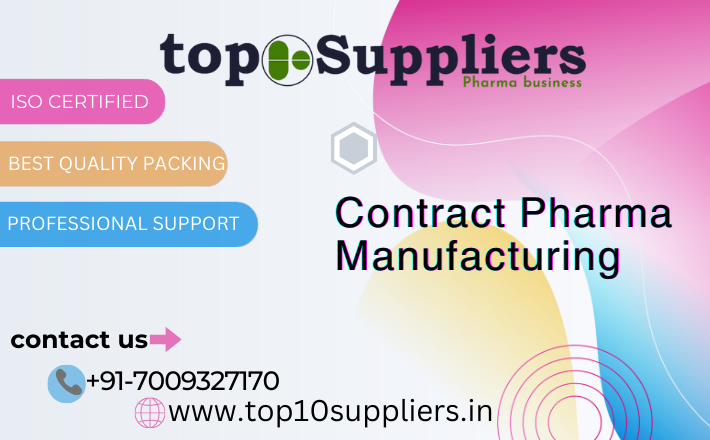In the ever-changing scene of the pharmaceutical industry, companies are increasingly turning to specialized partners for the manufacturing of their pharmaceutical products. This practice, known as Contract Pharma Manufacturing, has gained significant traction due to its potential to streamline operations, enhance efficiency, and foster innovation. In this blog post, we’ll embark on a journey to explore the fundamentals of Contract Pharma Manufacturing, shedding light on its key aspects and why it has become a pivotal strategy for pharmaceutical companies worldwide.
Understanding Contract Pharma Manufacturing:

What is Contract Pharma Manufacturing?
At its core, Contract Pharma Manufacturing involves outsourcing the production of pharmaceutical products to third-party manufacturers. Instead of investing in and maintaining their manufacturing facilities, pharmaceutical companies collaborate with specialized contract manufacturing organizations (CMOs) to handle the production processes. This strategic partnership allows companies to focus on research, development, and commercialization while leveraging the expertise and infrastructure of the Contract Manufacturing Organizations.
Key Components of Contract Pharma Manufacturing:
- Formulation Development: CMOs assist in the development of drug formulations, ensuring optimal efficacy, stability, and scalability.
- Manufacturing Processes: From raw material procurement to the final product, CMOs manage the entire manufacturing process, adhering to strict quality standards and regulatory requirements.
- Packaging and Labeling: Contract manufacturers often handle the packaging and labeling of pharmaceutical products, ensuring compliance with regulatory guidelines.
Advantages of Outsourcing Pharmaceutical Manufacturing:
- Cost Efficiency: Contract Pharma Manufacturing eliminates the need for extensive capital investments in manufacturing infrastructure, reducing operational costs for pharmaceutical companies.
- Flexibility and Scalability: CMOs offer the flexibility to scale production based on market demand, allowing pharmaceutical companies to adapt quickly to changing circumstances.
- Access to Expertise: Partnering with specialized contract manufacturers provides access to a pool of experienced professionals and cutting-edge technologies, enhancing product development and manufacturing capabilities.
Regulatory Landscape in Contract Manufacturing:
Ensuring compliance with regulatory standards is paramount in the pharmaceutical industry. Contract Pharma Manufacturing partners are well-versed in navigating the complex regulatory landscape, easing the burden on pharmaceutical companies and mitigating the risk of regulatory issues.
See also Pharma Franchise Companies
Conclusion:
In conclusion, the realm of Contract Pharma Manufacturing represents a strategic paradigm shift in the pharmaceutical industry. By entrusting manufacturing processes to specialized partners, companies can concentrate on their core competencies, foster innovation, and navigate the intricacies of regulatory compliance more effectively. As the industry continues to evolve, the collaborative approach of Contract Pharma Manufacturing is poised to play a pivotal role in shaping the future of pharmaceutical development and production.

